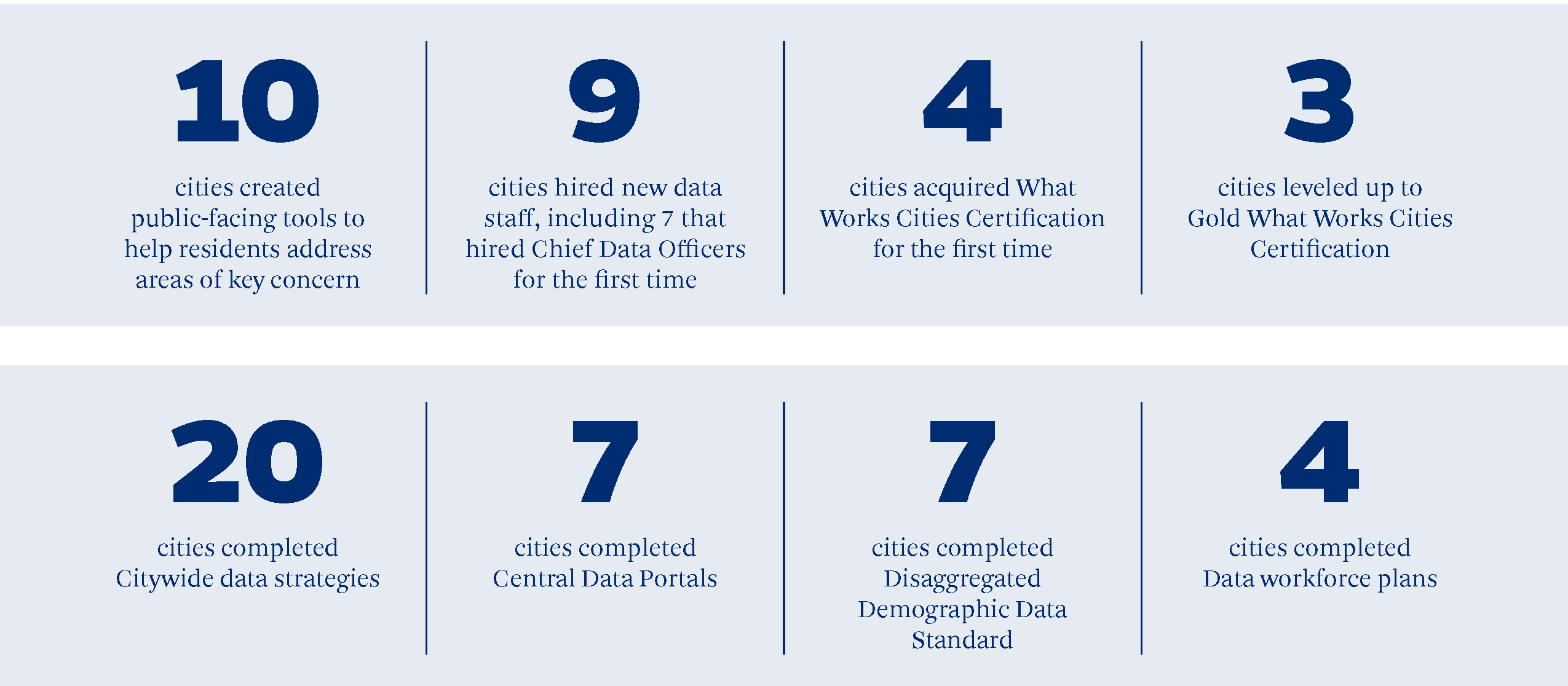Bloomberg Philanthropies City Data Alliance Cohort One Summary Report
The Bloomberg Philanthropies City Data Alliance launched in 2022 with the ambitious goal of identifying 100 mayors among the most sophisticated, ambitious, and advanced at harnessing data and helping them set a new standard for local governments committed to using data to power better results for residents.
The first cohort launched in July, 2022 and included 21 mayors from North, Central, and South America eager to take their data expertise to the next level. Mayors participated in a six-month acceleration program including executive education and individualized city coaching and consultation, as well as an up to 12-month investment to improve a critical data practice.

Several trends emerged as keys to success among this cohort.

Executive Leadership
Cities report that when their mayors returned from the CDA convening and made clear that harnessing data to improve residents’ lives would be a top priority, new or stagnant data efforts advanced quickly. This was particularly true when leaders took specific actions that demonstrated their commitment, like hiring new data-focused staff, integrating data-related discussions into high-level meetings, and forming data-focused committees with real authority.
Data Governance
Many cities had been gathering data for years but lacked the structures and people in place to gather, organize, and harness that data so that these cities could effectively leverage it to impact residents. The data governance coaching that CDA provides proved invaluable, especially in Latin American cities, in leveraging the data that cities had on hand.
Breaking Down Silos
In many cities, efforts around data collection and use was siloed within different agencies and teams within city government. By centralizing data efforts, often in the office of a Chief Data Officer, cities were able to break down those silos and streamline data efforts for maximum resident impact.
Activating People Across City Government
Several cities in the cohort advanced strategies and platforms designed to activate people from all levels of city government in data innovation. For example, Kitchener developed a database so that streetsweepers could focus on areas with the greatest need and Baltimore established the Baltimore Data Academy to train staff at all levels in the fundamentals of data use.
Read a summary of each city’s work:
